A History of Service at UNCG
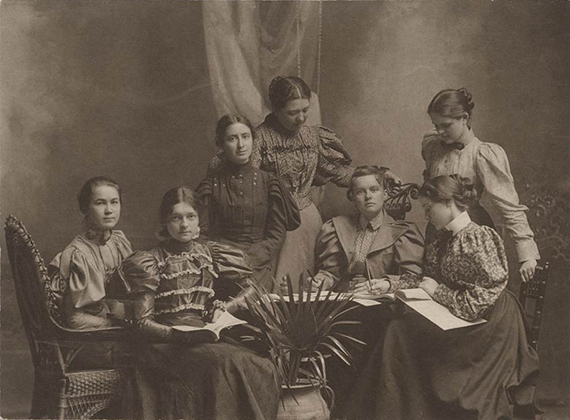
In 1902, students at State Normal formed the Woman’s Betterment Association, a group which sought specifically to improve North Carolina school buildings. Only four years after the organization started, 1,133 new school buildings were constructed in rural areas across the state.
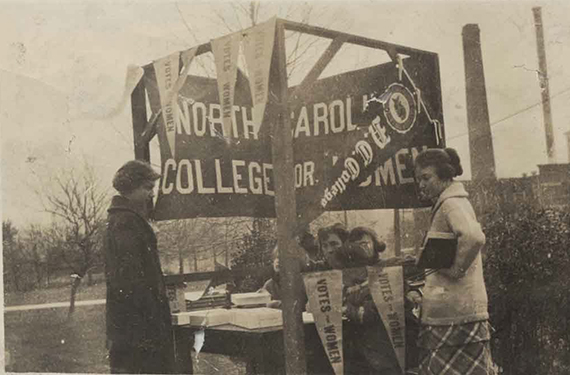
In 1915, 250 students participated in a suffrage march, led by members of the orchestra and other students with makeshift instruments, that paraded down College Avenue with “Votes for Women” banners flying high.
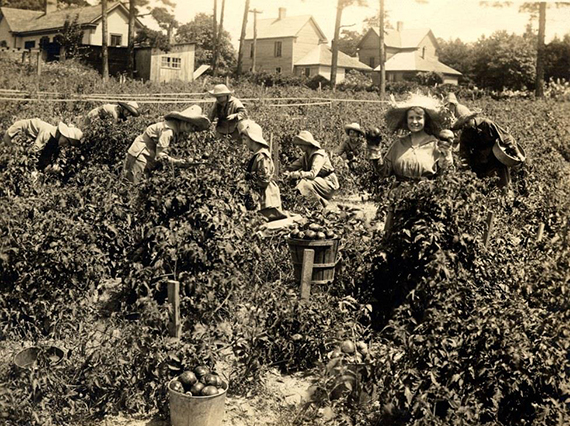
During the summer of 1918, ten State Normal students heeded President Woodrow Wilson’s call to increase American food production and reduce food waste during World War I by volunteering to work on a 300-acre farm just outside of Greensboro.
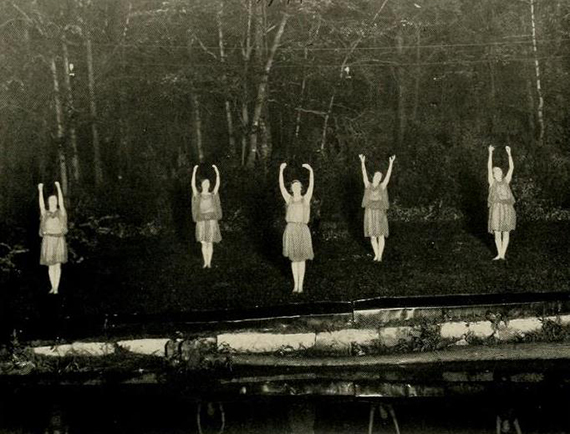
Park Night, a campus tradition in the 1920s and 1930s, was an allegorical drama featuring a character named Service (meant to represent the ideals of the school) as well as her attendants Mind, Body, and Spirit.
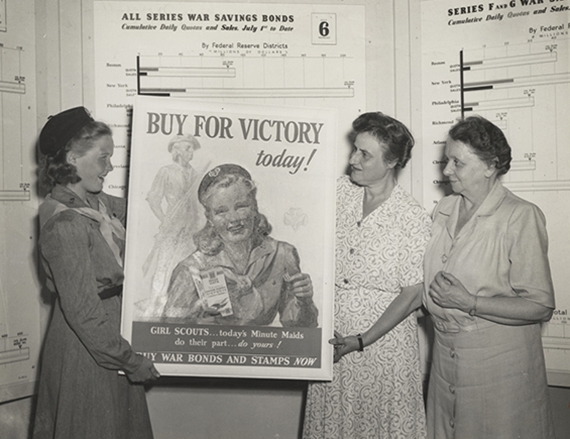
During World War II, students contributed to the war effort in many ways, including giving or raising money for war bond drives. Much of this activity was organized by the campus War Service League.
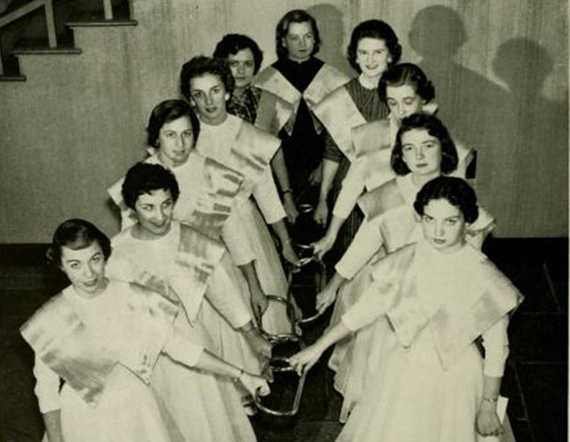
In 1948, students organized the Golden Chain Honor Society, honoring those students who had demonstrated a significant and meaningful commitment to campus service.
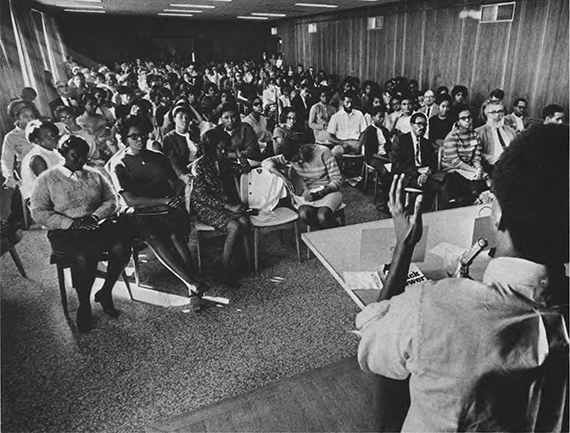
On November 1-3, 1967, UNCG played host to a controversial Black Power Forum, organized in large part by the Student Government Association to “inform students and faculty members of this movement and its actions and to give us a chance to discuss Black Power, its history, its political and social implications for us and the nation.”
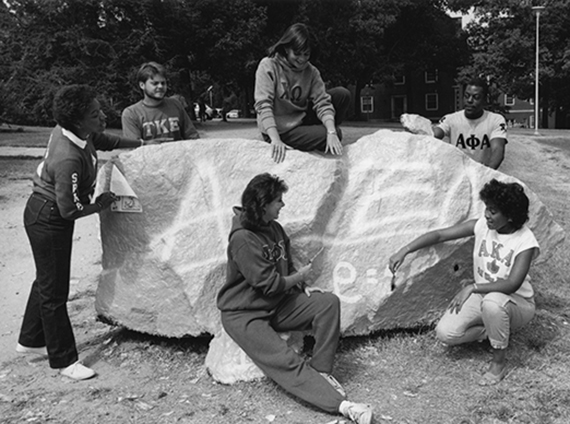
A chapter of Alpha Phi Omega, a co-educational service fraternity, was organized at UNCG in 1969. The group provided service to the community in a number of ways, from helping freshmen move into their dormitories to raising money for cancer research. Also, in 1973, the group donated The Rock, a 12.7-ton boulder that serves as a campus message board.
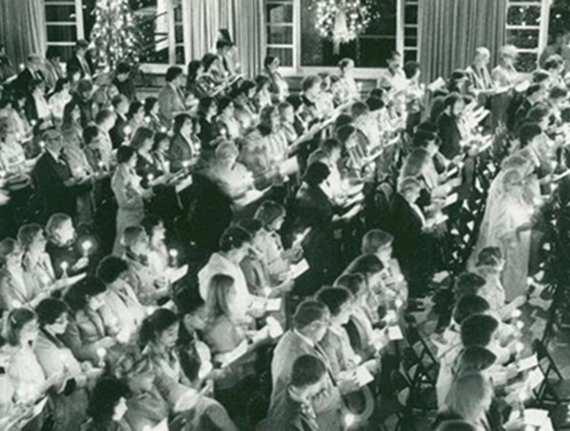
From the early 1960s until the mid-1980s, the UNCG campus hosted an annual Moravian Lovefeast and Candle Service during the first weeks of December. Music, scripture readings, and messages delivered by local ministers were featured during the services, which drew students, faculty, staff, and community members.
“Service” has been the motto of The University of North Carolina at Greensboro since 1893 when the school’s first ten graduates formed the Alumnae Fellowship and adopted the one-word phrase as the school motto. But service to the community and the state of North Carolina has played a constant role in UNCG’s development from its founding through today.
On February 18, 1891, the General Assembly of North Carolina passed an act calling for the establishment of a normal and industrial school aimed at providing education for the women of the state. Specifically, the school was “to give to young women such education as shall fit them for teaching.” When the State Normal and Industrial School (now UNCG) opened in Greensboro in October 1892, it served as a training ground for the future educators of the state.
When the first graduates completed the school’s program in 1893, President Charles McIver congratulated the students, but cautioned them that the diplomas came with added responsibilities, both to their future pupils and to the state. He warned, “your obligations to the State are greater than they were a year ago … North Carolina has a right to a return on her investment, and she desires it to come in the form of womanhood, patriotic citizenship, and your very best professional service in the field of education.” Since this first graduation, UNCG has contributed to the development of North Carolina by producing students who work in service to their community.
This online exhibit explores just a few of the many ways in which UNCG and its students have worked in service to the local community and the state of North Carolina over the school’s history.